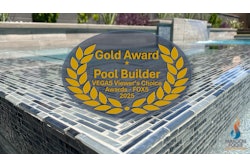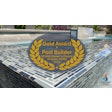
Case joins the CMAHC with more than 20 years of experience in the aquatics industry. He began managing aquatic facilities while still in college and currently serves as the association aquatics director of the family YMCA of Southeast Mississippi.
Case holds instructor trainer certifications from the American Red Cross and instructor credentials with the Pool and Hot Tub Alliance. His service on multiple aquatic safety committees, including two CMAHC technical committees, has given him a strong working knowledge of the Model Aquatic Health Code and the many ways it can improve public health at aquatic facilities.
“I have dedicated my career to improving health and safety at aquatic facilities and am eager to apply all I have learned in my new role as technical director of the CMAHC,” says Case. “The Model Aquatic Health Code is such an incredible resource for the industry, and I look forward to helping aquatics and public health experts across the nation interpret and apply its guidelines to make swimming a safer experience for everyone.”
As technical director, Case will serve as the technical expert on all aspects of the MAHC. He will drive the CMAHC’s research agenda and committee work, provide interpretations of MAHC code language for public health experts and members of the aquatic industry, and vet and approve product certification under the CMAHC Certification Program.
The CMAHC’s former technical director, Douglas Sackett, has been working with Case to transition his duties and plans to officially retire as of Jan. 31, 2020. Sackett helped establish the CMAHC and served as its executive director from its inception in 2014 until June 2019, when he transitioned to the newly created role of technical director. With the MAHC update process well-established and new leadership in place, Sackett feels ready to retire from his duties with the CMAHC. He plans to spend more time pursuing his hobbies and interests, including riding his horse, nature photography, kayaking, hiking and enjoying his land in upstate New York.
“The CMAHC has more talent on board now than ever before to help ensure the Model Aquatic Health Code stays up-to-date with the latest science and best practices and is also being applied in the most efficient and effective way possible,” says Sackett. “I’m proud of how much our team has accomplished in the last five years and am confident the organization has a bright future ahead of it.”






































